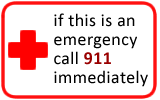Antibiotics: When Do They Help
Antibiotics: When Do They Help
Definition: Antibiotics are strong medicines that can kill bacteria. Antibiotics have saved many lives and prevented bacterial complications. However, antibiotics do not kill viruses. One of the decisions healthcare providers make every day is whether a child's infection is viral or bacterial. Consider their perspective. Bacterial Infections: Antibiotics can help and will be prescribed Bacterial infections are much less common than viral infections. Bacteria cause:
Viral Infections: Antibiotics do NOT help Viruses cause most infections in children including:
Cold Symptoms that are Confusing but Normal These symptoms are sometimes mistaken as signs of bacterial infections and a reason for starting antibiotics:
Side Effects of Antibiotics All antibiotics have side effects. Unless your child really needs an antibiotic, there is no reason to risk the side effects of the medicine. Some children taking antibiotics develop diarrhea, nausea, vomiting, or a rash. The diarrhea usually occurs because the antibiotic has killed off the healthy intestinal bacteria. And if your child gets a rash, your doctor must decide if the rash is an allergic reaction to the drug or not. The biggest side effect of overuse is increasing resistance to the antibiotics. Giving Antibiotics for Viral Infections: What Happens? If your child has a viral illness, an antibiotic will not shorten the course of the fever or help the other symptoms. Antibiotics will not get your child back to school or you back to work sooner. If your child develops side effects from the antibiotic, he will feel worse instead of better. What You Can Do
Author and Senior Reviewer: Barton D. Schmitt Content Set: Pediatric HouseCalls Symptom Checker Pediatric HouseCalls Symptom Checker |
Updated:
March 22, 2017
